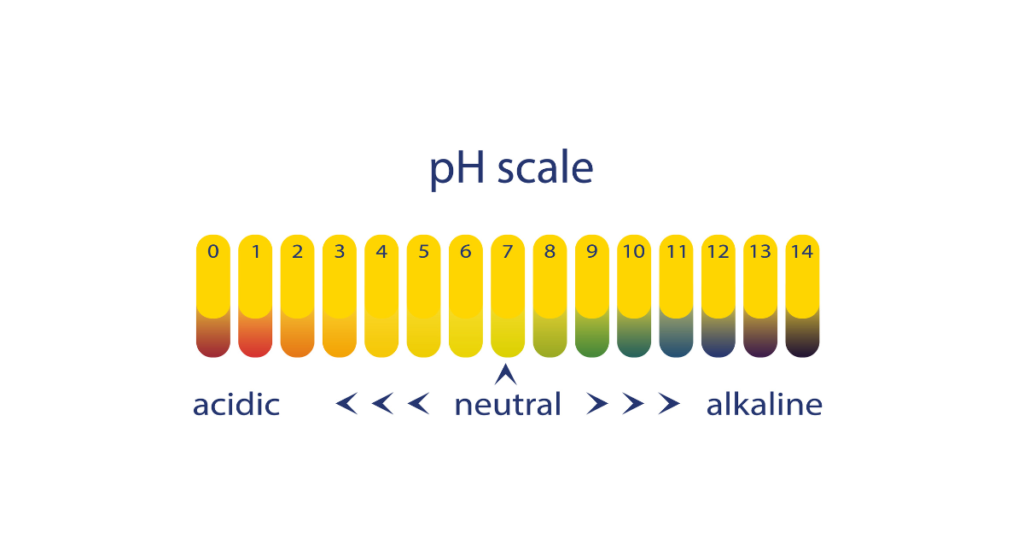Are you tired of feeling sluggish, dealing with digestion woes, or battling the ups and downs of energy levels?
It is time to figure out a solution that’s not just about what you eat but how it impacts your body’s pH balance. In this literature, we will explore alkaline foods and diet, a simple yet powerful approach to wellness that can address the everyday challenges many of us face with highly acidic foods.
Whether you are looking to soothe digestive discomforts or boost your energy naturally, incorporating alkaline foods into your diet could be the key to unlocking your body’s optimal pH and revitalizing your health.
Let’s begin!
Table of Contents
What is an Alkaline Diet?
An alkaline diet promotes including foods in your diet that are alkaline in nature with a pH of more than 7. This diet emerged on the concept that consuming more acidic foods can harm the body. But if you replace them with foods having alkaline properties, they can help balance the body’s pH and provide protection against various health issues.
The digestion and absorption process in the body leaves behind a residue, commonly termed metabolic waste. This ash residue can be acidic, alkaline or neutral.
Supporters believe that the acidic nature of the residue can be harmful, whereas, alkaline ash minimizes the risk of various diseases.
What is pH?
You must have studied about this in your science classes.
pH is a measure to determine whether the substance is acidic or alkaline.
It is measured on a scale of 0 – 14.
- 0 – 6.9 pH means acidic
- 7 means neutral pH
- 7.1 – 14 pH is alkaline

We all know that the hydrochloric acid released into our stomach is highly acidic and is essential for proper digestion. Our blood is alkaline with a pH ranging between 7.35 – 7.451.
It is important to note that the foods we consume do not affect the pH of our blood. It can only change during medical conditions like metabolic acidosis or metabolic alkalosis if left untreated.
The foods we consume can change the pH of our urine but not the blood.
It is also noteworthy that some parts of our body are naturally acidic and some are naturally alkaline.
The promoters of an alkaline diet determine the pH of urine and suggest that it should be alkaline and not acidic. However, it is not a reliable indicator because urine pH can also be affected by other factors.
What are Alkaline Foods?
Here are some of the best examples of alkaline foods.
- Fruits like pineapple, apple, berries, avocado, cantaloupe, banana, cherries, apricots and unsweetened fruit juices.
- Vegetables like mushrooms, cucumber, green peas, broccoli, cabbage, carrots, leafy greens.
- Legumes
- Nuts like almonds, chestnuts, and pine nuts.
- Seeds like pumpkin seeds, flaxseeds, sunflower seeds, and chia seeds.
- Oats, Millets, and Quinoa
- Tofu
- Fresh Coconut
- Almond Milk
- Olive Oil
What are the Potential Benefits of an Alkaline Diet?
This section will discuss in detail the potential or claimed benefits of alkaline foods.
May Boost Heart Health
The alkaline diet is considered heart-friendly as it encourages the intake of fresh fruits and vegetables while avoiding processed, junk and sugary foods. Being low in calories and fats, it minimizes the risk factors of heart diseases.
A study2 conducted on 32 women observed better body composition and cholesterol levels on following an alkaline diet with aerobic exercises for 8 weeks.
May Reduce Cancer Risk
This claim is based on the concept that an acidic environment favours cancer or tumour cells to thrive and multiply. Therefore, an alkaline diet can help mitigate these effects and lessen cancer risk.
Cancer experts suggest a large number of clinical trials are needed to support the claim as currently, we do not have any conclusive evidence or study supporting this potential benefit.
May Promote Weight Loss
People aiming to lose extra weight can benefit from an alkaline diet because of its low-calorie content.
The alkaline diet primarily focuses on fruits, vegetables, nuts, seeds, millet and prohibits consuming processed foods, red meat, fried foods, alcohol, starchy foods, sugary foods and beverages.
An alkaline diet chart is typically high in dietary fiber and contains fewer calories which may support your weight loss goals.

May Minimize Kidney Stone Risk
Consuming a diet high in animal protein may increase the amount of acid that is excreted in the urine which eventually raises the risk of developing renal or kidney stones.
Since an alkaline diet recommends avoiding foods like meat, poultry and fish, the chances of developing kidney stones decreases.
May Reduce Osteoporosis Risk
Supporters of an alkaline diet claim that it can help prevent bone damage. It is believed that acidic residue from metabolic waste draws out bone minerals like calcium to neutralize the acidic effect. This gradually results in bone loss and increases osteoporosis risk.
However, there are no conclusive studies to support this theory.
Alkaline vs Acidic Foods

Acidic foods are acid-producing foods with a lower pH. They tend to reduce the pH of the urine which is speculated to affect bone, heart, muscle, and kidney health. Acidic foods can also increase the acidity in the body and may aggravate gastrointestinal issues like acid reflux or ulcers.
Alkaline foods have a pH of more than 7 and are considered to reduce acidity in the body by optimizing the body’s pH and promoting an alkaline environment. Proponents believe alkaline foods are beneficial to reduce inflammation and keep organs healthy.
Alkaline Foods List: What To Eat and Avoid on an Alkaline Diet

| Alkaline Foods | Acidic Foods |
| Broccoli | Tomato |
| Coriander | Apple Cider Vinegar |
| Cucumber | Processed or Packaged Foods |
| Berries | Chicken |
| Almonds | Fish |
| Watermelon | Dairy |
| Coconut | Alcohol, Coffee or Tea |
| Tofu | Wheat |
| Berries | Sugar |
| Quinoa | Walnuts |
Alkaline diet also forbids the intake of whole eggs, soda, sugary or sweetened foods and beverages, ice creams, cheese, and peanuts.
Are there any Side Effects of an Alkaline Diet?
People following an alkaline diet refrain from consuming sugar-loaded, processed, junk, and packaged foods. Instead healthy food choices like fruits, vegetables, nuts, seeds, etc. are preferred which may help boost overall health and well-being.
However, the diet also comes with some cons. It does not include good-quality protein foods and restricts some healthy foods which may cause nutritional deficiencies in the long run. One may find it expensive and difficult to sustain.
Although, people with chronic kidney disease may benefit from low-protein and low-acidic foods.
Conclusion
To sum up, an alkaline diet may help lose weight, fight inflammation and boost organ functioning as it focuses on healthy food options and excludes unhealthy food choices.
People facing frequent indigestion issues on consuming highly acidic foods can consider increasing the intake of alkaline foods as it may help soothe inflammation, and acidity, and improve symptoms3. But, strictly adhering to an alkaline diet may not be a good option.
It is important to note that the alkaline diet is based on the foundation that it improves health by altering body pH, which is not yet clinically proven.
Therefore, if you plan to start an alkaline diet, consulting a doctor or a nutrition expert for correct guidance on your needs is advisable.
Frequently Asked Questions
What is the importance of pH in everyday life?
Maintaining a balanced pH in the body is important for overall health. Overly acidic or alkaline diets can impact the body’s acid-base balance, potentially affecting bone health, kidney function, and other aspects of wellness.
What is the pH value of blood?
The pH of blood is alkaline and ranges between 7.35 – 7.45.
What is the pH of milk?
The pH of fresh cow milk is usually between 6.5 and 6.7 which changes over time. As the milk goes sour, it becomes more acidic and the pH gets lower.
What is the pH of gastric juice?
The pH of gastric juice is around 2-3.
What foods are highly alkaline?
Broccoli, leafy greens, cucumber, bell peppers, almonds, watermelon, and cabbage are a few alkaline foods.
Which Indian food is alkaline?
Several foods commonly found in India are alkaline and may help maintain body pH like spinach, tori (ridge gourd), tinda (round gourd), bottle gourd (ghia/lauki), karela (bitter gourd), ragi, jowar, melons, corinader seeds, fennel (saunf) seeds, and mint leaves.
Are bananas alkaline?
Bananas are considered alkaline. When digested, they produce alkaline byproducts such as potassium, magnesium, and other minerals, which can help maintain an alkaline environment in the body.
Are eggs acidic or alkaline?
Eggs whites are considered less acidic than egg yolk.
What are the best alkaline foods for acidity?
Green leafy vegetables, fruits, nuts, seeds, tofu, parsley, basil, and coconut are considered good for acidity.
List some alkaline fruits.
Watermelon
Cantaloupe
Pear
Banana
Apple
Berries
How can I alkalize my body quickly?
Here are a few helpful tips:
1. Avoid acidic foods
2. Include alkaline foods in the diet
3. Manage stress
4. Maintain a regular sleep schedule
5. Exercise regularly
6. Drink lemon water
Is alkaline diet good for your body?
The alkaline diet has both proponents and critics, and its overall impact on the body depends on various factors. For most people, a balanced approach to nutrition is key. Incorporating alkaline foods like fruits, vegetables, and nuts into a balanced diet along with lean proteins, whole grains, and healthy fats can promote overall health. It is better to focus on overall dietary patterns rather than a single aspect like acidity or alkalinity.
What is pH full form?
The full form of pH is potential of hydrogen.
Is lemon acidic or alkaline?
Lemon juice is acidic. However, it exerts an alkalizing effect on digestion. Therefore, there is no harm in enjoying a glass of lemon water.
What are some alkaline foods benefits?
Alkaline foods are associated with various health benefits.
1. Low in calories.
2. High in vitamins, antioxidants and minerals.
3. May aid weight loss.
4. May reduce inflammation.
5. Easy to digest.
6. May reduce the risk of acid reflux and indigestion.
7. Promote optimal metabolic function.
Is alkaline water good for you?
Alkaline water is simply water infused with some alkaline minerals and has a pH of more than 7. It may provide relief from acidity or related issues and help restore the overall pH balance of the body. However, it is not a magical drink and currently, there are no conclusive studies to support the regular intake of alkaline water as a treatment for any medical condition.
Sources
- Hopkins, E., Sanvictores, T., & Sharma, S. (2022, September 12). Physiology, acid base balance. StatPearls – NCBI Bookshelf. https://www.ncbi.nlm.nih.gov/books/NBK507807/ ↩︎
- Yalçinkaya, N., Işık, Ö., Beyleroğlu, M., Erdoğdu, D., Çiçek, G., & Novak, D. (2024). Effects of 8-week alkaline diet and aerobic exercise on body composition, aerobic performance, and lipid profiles in sedentary women. Frontiers in Nutrition, 10. https://doi.org/10.3389/fnut.2023.1339874 ↩︎
- Schwalfenberg, G. (2012). The alkaline diet: Is there evidence that an alkaline pH diet benefits health? Journal of Environmental and Public Health, 2012, 1–7. https://doi.org/10.1155/2012/727630 ↩︎
